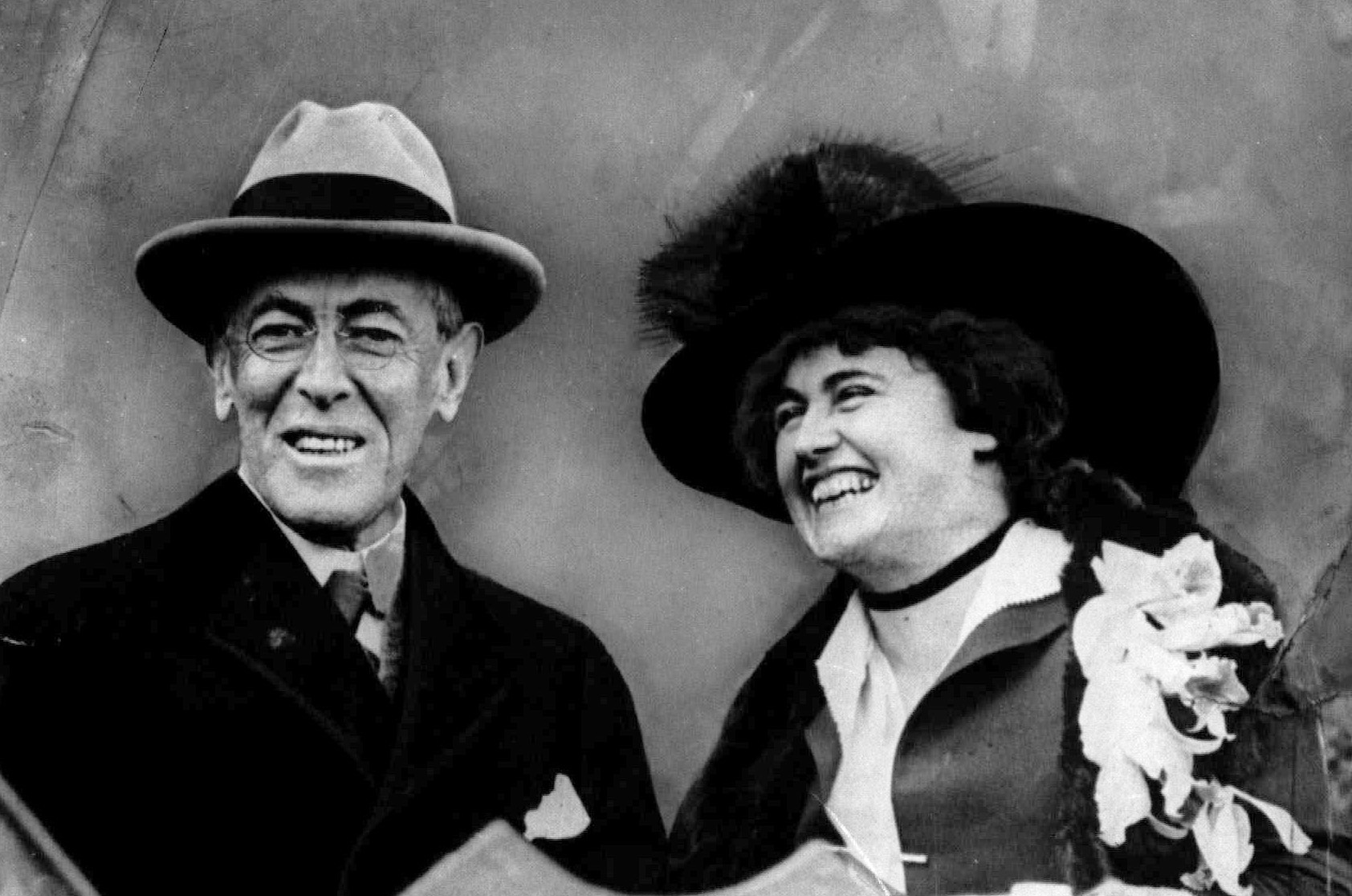The ongoing debate over Hillary Clinton’s health has focused on the nature and extent of her maladies, and (as a longshot) who might replace her on the presidential ticket should she be unable to continue the campaign.
But what if Clinton’s health deteriorates after she wins the presidency?
If she were to die, the Constitution calls for her vice president, Virginia Sen. Tim Kaine, to step in. But what if a President Hillary Clinton merely becomes unwell? Again, the Constitution provides for the ascension of the vice president not only in the case of the president’s death, removal or resignation but also in the event that he or she is unable “to discharge the powers and duties” of the presidency. But what if Clinton is rendered unable to perform the duties of the presidency but no one is told about it?
This would be unusual, of course, but not unprecedented. Just look at the case of Woodrow Wilson and his second wife, Edith Wilson.

Just look at the case of Woodrow Wilson and his second wife, Edith Wilson. (AP Photo)
On October 2, 1919, President Wilson suffered a severe stroke that rendered him partially paralyzed, unable to speak and partially blind in one eye. As the president moved in and out of consciousness, Edith was left to run the government by proxy.
Woodrow continued to suffer from the effects of his stroke until the end of his presidency two years later, but the first five months were especially trying. Wilson’s personal physician, Dr. Cary Grayson, and Edith, who was extremely protective of her husband, felt total isolation gave him the best chance of survival and recovery. During those first five months, the public didn’t see its president at all.
Edith felt it was her main task to control who had access to the president. She took on most of the decision making herself. She signed documents in Woodrow’s hand, haggled with congressmen over pending legislation, issued vetoes and helped craft a State of the Union address. She even decoded secret diplomatic codes.
In “The Strangest Friendship in History,” George Viereck writes that “While Wilson was on his back, Edith exercised the functions of the President … no senator, no member of the Cabinet, not the President’s own secretary could gain a glimpse of Wilson without her permission. Her whim decided whether a king or an ambassador was to be received, whether a bill awaiting the President’s signature would become law or not … no act of Woodrow Wilson from this period until the end of his life, was undertaken without the knowledge and consent of Edith Bolling Wilson.”
There was no doubt that Edith had taken the reins of power. As William Hazelgrove notes in his forthcoming book, “Madam President: The Secret Presidency of Edith Wilson,” “When looking through the Papers of Woodrow Wilson, one is struck by how much correspondence from 1919 to 1921 was directed toward Edith. From the debate over America’s entry into the League of Nations to winding down World War I, to the recognition of diplomats, Edith was on the front lines.”
But much of the business of the United States simply piled up at what Hazelgrove called the “Edith Wilson dam.” Miners were striking, railroads still hadn’t been returned to their owners after World War I and Coast Rica needed to be recognized as a country. But all of that had to wait—the president needed his rest.
Perhaps Edith’s greatest feat was that she kept it all secret from the public. For months, the media were told that the president was suffering from “nervous exhaustion.” Grayson regularly fed journalists cheery medical assessments.
The public was left wondering whether their president had gone crazy. Edith felt that to reveal the true nature of her husband’s illness would only encourage a coalition of senators that had formed to oppose the League of Nations, Wilson’s signature initiative. She believed resignation would destroy his greatest reason to live.
So the public was left in the dark, and the media were left to speculate. As Hazelgrove writes, “No one, including the vice president, was to be informed that President Woodrow Wilson was now a low functioning invalid.” Only Edith and Dr. Grayson knew the full extent of the damage, and to a lesser extent Ike Hoover, the president’s valet. In his diary, Hoover wrote, “Never was deception so universally practiced in the White House as it was in those statements being given out from time to time.”
The case of Woodrow and Edith Wilson prompted Congress to pass the 25th Amendment, which clarifies the rules of presidential succession.
Edith Wilson is sometimes referred to as the first female president. But her story prompts the following question: What would America’s real first woman president and her husband do in a similar situation?
It might seem obvious that such a deception would be impossible in today’s era of ubiquitous social media and the 24-hour news cycle.
But does anyone think that Bill and Hillary Clinton — two of the most secretive and deceptive politicians of their generation — wouldn’t at least consider orchestrating a similar cover up?
After all, Edith was able to pull it off with just two years of formal education. Bill is a former two-term president who may well be eager to assume to reins of power once again.
Daniel Allott is deputy commentary editor for the Washington Examiner
